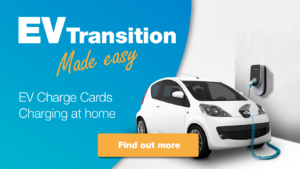Is multifuel the future for fleets?
Written by: Simon Pavey, Last updated:30th May 2023

The pursuit of decarbonisation and NetZero 2050 is driving more and more businesses to look for alternative fuel sources to power their fleets. With the variety of low carbon alternative fuel sources rising and access to these products increasing each month, there’s an interesting question for fleet managers to answer concerning the role that different fuel types play within commercial fleets.
Making sustainable changes to the way we power our fleets is no simple nor cheap task, and the logistics of this shift means many fleets are already using a range of fuel types across their vehicles. Recent studies suggest this is a pattern we could see continue.
So, is multifuel the future of fleet power, and how does it help the process of decarbonisation? In this article, we take a look at a recent survey of multifuel use in shipping fleets and consider what the findings could similarly mean for road travelling fleets.
The Global Centre for Maritime Decarbonisation survey
The topic of multifuel fleets has come into recent discussion with the publishing of results from a survey by the Global Centre for Maritime Decarbonisation. The survey, conducted across 29 shipping companies making up 20% of global capacity, showed that 46% of respondents already had run pilot programmes for use of one or more low carbon alternative fuels and had plans for further implementation in place.
The survey also showed that across the respondents there was uncertainty for what fuel use might look like by 2050, however many expected there to be a variety of fuel alternatives used across fleets. Some of the fuels in discussion included green ammonia, biodiesel, liquefied natural gas (LNG), biomethanol, and biomethane.
This survey, whilst focused on the fuel trends of maritime fleets, sparks an important conversation about how the uptake of more sustainable fuel alternatives might look as we move forward.
Multifuel use in road fleets
Decarbonisation is of growing importance for fleet managers and is a growing focus in vehicle acquisition. But despite growing awareness of the importance of decarbonising our fleets and the variety of Government incentives that aim to help finance this change it is still a costly process, especially for larger SME fleets.
The likelihood of a swift and total shift from combustion engines to, for example, electric vehicles is low for most fleets. Electric vehicles are expensive, and there is infrastructure required to facilitate their use. Add on the developments that we are seeing in alternative fuels and the increasing availability of these means that more than likely we will see multifuel use across fleets come way before isolated use of a carbon neutral solution.
Taking a moderate approach to decarbonisation of fleets is likely to be one of the more practical and affordable ways that fleets can reduce emissions. Introducing alternative engine type vehicles when affordable, and utilising compatible alternative fuels that reduce environmental impact where possible in traditional engine vehicles.
How this could affect fleets
Fleet managers have historically only had to worry about diesel and petrol when managing fuel usage and purchase. A fleet that features combustion and electric vehicles, and perhaps hydrogen vehicles or vehicles running on biodiesel might seem like a quick trip to a complicated fuel management process.
Fortunately, a diverse fleet doesn’t need to be a hinderance for fleet managers, and the task of fuel management doesn’t need to become something exceedingly complicated or long winded.
EV charge cards such as the Allstar One Electric, Shell Recharge Card, and the bp Fuel & Charge card are great examples of how the shift to multifuel fleets is already being accommodated. These cards are versatile, meaning whether you use traditional fuels or electric, you can use these cards to get them filled up and recharged.
With access to thousands of refuelling/charging sites around the country, these cards are great for diverse fleets.
You can learn more about our range of EV charge cards, or get in touch with our team today to discuss the right fit for you, whatever your fleet looks like.
back



